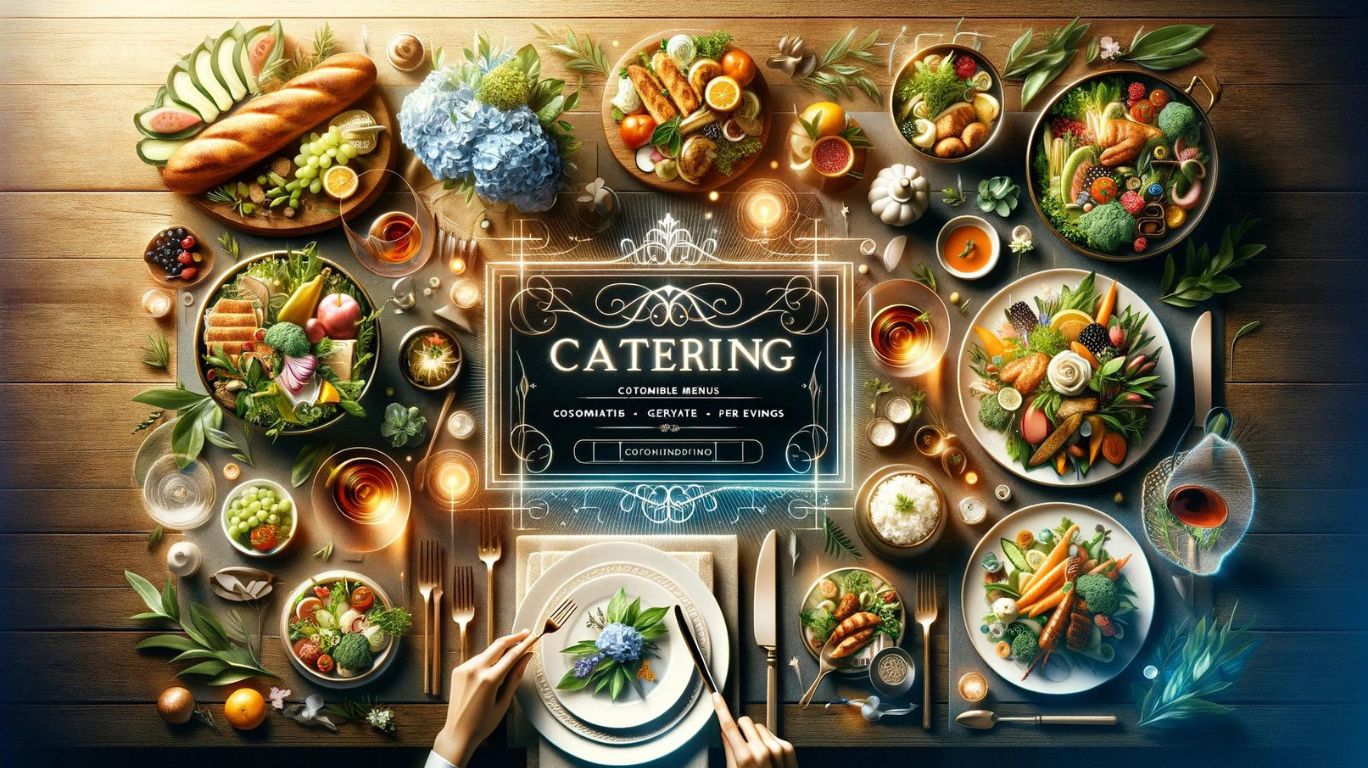Review: Netflix’s ‘Iron Chef’ Reboot Feels Food-Network Familiar
[ad_1]
Check with any individual who enjoys Television set cooking competitions what show’s their favourite, and they’ll probable have a distinct answer: It could be the stalwarts, Chopped and Best Chef new college streaming shows like Is It Cake? and Baker’s Dozen or, of study course, twee sensation The Terrific British Bake Off. But the mother of all cooking demonstrates is, and will generally be, Iron Chef. Launched in 1993 in Japan, the authentic variation, hosted by the regal Chairman Kaga, was lethal significant in its exuberant quest for culinary excellence, an mind-set flipped on its head with the campy, hilarious dubbing that followed when the Meals Network started airing it in the U.S. in 1999.
Iron Chef, in all its splendor, threw both of those its esteemed Iron Chefs and bold challengers into a grand arena — “Kitchen Stadium” — a spectacle compared with any other on television. The demonstrate was the progenitor of cooking as sport, demanding two chefs to prepare dinner the much better meal working with a shared topic component, and it enthroned chefs as heroes. In turning cooking into storylines akin to pro wrestling drama, the first Iron Chef strengthened the idea of cooks as auteurs, or cooks as icons deserving of veneration. The opening monologue dubbed the Iron Cooks “the invincible men of culinary capabilities,” playing up the plan that if “ever a challenger wins more than the Iron Chef, he or she will attain the people’s ovation and fame forever.”
But as reckonings inside the restaurant market have peeled back again some of the extensive-standing reverence for chefs, the rebooted Iron Chef: Quest for an Iron Legend, which premiered on Netflix, raises the problem of why we ought to nevertheless treatment about elevating chefs into this amount of admiration. (Food stuff Network’s long-jogging model, Iron Chef America, which ran from 2004 to 2018, now seems like a relic of a prior period, with the now-disgraced Mario Batali just one of its early Iron Cooks.) Quest for an Iron Legend addresses the “why treatment?” issue significantly like the primary does: by promoting us on who these competition are, and why their tales need to make a difference to us. The show’s extraordinary new music, speedy zoom-ins, and sluggish-movement victory poses really feel ham-fisted compared to the far more stoic Japanese eyesight, but overall, the system carries on to do the job.
Netflix’s reboot brings again the first Food Community duo Alton Brown as host with actor Mark Dacascos as Chairman Kaga’s “nephew.” But with an entirely new set of judges, challengers, and Iron Cooks, the show does not have time to produce the names of its in-dwelling heroes, so they as a substitute arrive with yrs or even many years of prior culinary accomplishment and recognition: think Curtis Stone, Marcus Samuelsson, Ming Tsai, Dominique Crenn, and Gabriela Cámara. There is also a diverse forged of competition: Mason Hereford of New Orleans’s Turkey and the Wolf, Esther Choi of New York City’s Mokbar, Curtis Duffy of Chicago’s Ever, Claudette Zepeda of San Diego’s Vaga, Yia Vang of Minneapolis’s Union Hmong Kitchen area, Mei Lin of LA’s Daybird, and Gregory Gourdet of Portland’s Kann. There is no lack of culinary potential here, and these chefs appear with as a lot acclaim as the Iron Chefs, nevertheless with less many years of expertise, unquestionably.
(There are spoilers from this point on)
:no_upscale()/cdn.vox-cdn.com/uploads/chorus_asset/file/23843860/IRON_105_Unit_01267RC.jpg)
The original Japanese Iron Chef was an extremely stylized, remarkable duel of culinary wits, pitting proven more mature male chefs from the often stoic Iron Cooks of Chairman Kaya’s secure (Masaharu Morimoto, one of the Japanese Iron Chefs and a longtime Iron Chef in the American variation, makes a key judging visual appearance in the Netflix reboot). Iron Chef The us showcased a related dynamic of powerful opposition, but with hosts that offered levity. The Netflix version carries most of the tone and strategy of Iron Chef The united states. In the new Kitchen area Stadium, human audiences have been changed by CGI graphics and piped in applause, introducing an edge of tacky, “don’t acquire this also seriously” perspective. Major Chef alum Kristen Kish is now the sideline reporter along with Brown, who proceeds his streak of factoids whilst Kish adds her possess extensive cooking know-how to the commentary.
Beauty alterations aside, the display argues that the overall target for the cooks remains the same: the chance for glory, or profitable for the sake of simple satisfaction in one’s work. In the new Iron Legend, there is a throughline objective which is intended to encourage competitors: the maximum-scoring competitor who clears their to start with fight competes in a finale in opposition to all five Iron Cooks. If the challenger wins, they are provided the title of Iron Legend, get a plasticky golden chef’s knife as a trophy, and, of training course, some ineffable recognition as a future-stage master. With pleasure and glory as the key motivators, the show wills us to feel that cooks covet the knife-formed trophy. It feels convincing due to the fact of the verisimilitude of the frenetic, large stakes exhibition on Tv set to the generally intensive force cooker environments of experienced kitchens. In all Iron Chef formats, the amount of cooking on exhibit — minus the inclusion of two previous sick-equipped NFL gamers in the present series — usually seemed to be additional arduous than in other competitions.
Of training course, the audience will hardly ever get the opportunity to attempt any of this meals. But the present translates style and taste in the backstory and viewpoint of each and every chef, which in transform gives viewers a perception of what the judges are feeding on without a a lot more on-the-nose, publish-recording job interview usual of other truth shows. For the most part, this is effective since rivals usually lean on their heritage and identification for assembling flavors.
As an illustration, Choi says her grandmother warrants all the credit for her appreciate of foodstuff, but she crafts a menu that weaves in traditional residence cooking like a king crab bibimbap to one thing extra polished, like a kimchi butter lobster ramen she may possibly serve at her Brooklyn restaurant. Battling tears, Choi tells the judges, “every dish we put out there has to do with our tradition and who I am.” Banking on heritage is definitely not a new a person in Iron Chef, but with the earliest seasons essentially expressions of classical European or East Asian cuisines, and later Iron Chef The us menus spanning a more international technique, it is refreshing to see youthful cooks not just unafraid of boasting their cultures, but amplifying them without having pandering to the perceived criteria of French, Italian, Japanese, or Chinese cuisines. And the monitor time to set earlier lesser regarded cuisines into the limelight, these kinds of as Gourdet’s Haitian, Vang’s Hmong, or Zepeda’s border Baja California flavors, feels like a sensible shift in 2022.
Cooking competitions are fantastic tv, but also absurd. Rooting for the rivals or Iron Chefs on Iron Legend feels identical to rooting for superheroes in our age of Marvel and D.C: There’s a feeling of futility. On-screen, it is tricky to sense a palpable conflict amongst competition, and there is sufficient substantial-fiving and extensive-hugging to make you question if the chefs arrived onto the display emotion like there was a good deal at stake.
But I kept coming again to own tales that resonate in the foodstuff and cooking. Black and white or sluggish-motion recollection have been a regular component of the Japanese Iron Chef, both the Chairman’s very own or the competing chef’s nostalgia. It was those moments on Iron Legend that I felt most fascinated in who was competing and why, such as when Choi recalled her Korean grandmother or when Vang talked about the Hmong flavors he learned soon after immigrating to the U.S.
Choi, who was just one of just two opponents who beat an Iron Chef, earns the optimum score and hence the chance to prepare dinner for the Iron Legend in a major time finale that pits her and her courageous two sous cooks Ilji Cheung and Jin Jang against all five Iron Chefs. Choi sales opportunities the judges via her entire culinary occupation, undergirded by her Korean heritage. In the close, her workforce falls brief by a mere point, a end result that seems suspect to assist propel the present into a different season. But looking at Choi, with whom I’ve recorded a video clip at a cafe named immediately after her grandmother, and somebody I see as a long run luminary in the modern Korean foods scene, felt like anyone value rooting for.
Possibly that’s why references to the authentic culinary influences — moms, fathers, grandmothers — convinced me that acknowledging cooks for their cooking capabilities is a deserving endeavor that perhaps the quest for an Iron Legend is a lot less about the desire for glory, but knowledge that spouse and children and cultural roots, nostalgia, and memory are more effective flavors than procedure or prowess and finally, that the battlefield itself is meaningless with out knowing why the foods matters on the plate. At the commencing of each individual episode, the first Iron Chef exhibited Jean Anthelme Brillat-Savarin’s adage, “Tell me what you take in, and I will convey to you what you are.” It’s possible the new Netflix edition should say, “Show me how you cook dinner, and you have advised me who you are.”
[ad_2]
Resource backlink




